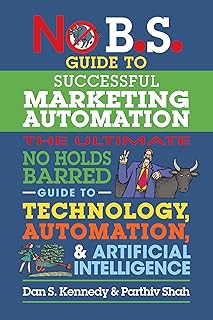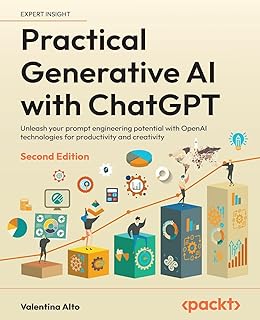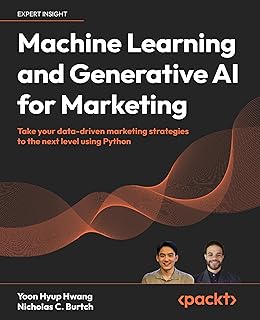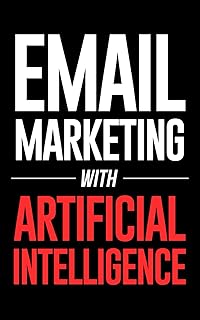Generative Artificial Intelligence (GenAI) is making significant waves in the marketing landscape, with projections indicating substantial market growth in the coming years. The Generative AI in Marketing Software segment is poised to reach $16.3 billion by 2030, driven by a CAGR of 33.5%. Concurrently, the Generative AI in Marketing Services sector is forecasted to expand at a 38.7% CAGR during the analysis period. These advancements are not confined to a single market; the U.S. market, valued at $1.1 billion in 2024, and China, expected to grow at a remarkable 33.7% CAGR to hit $4.0 billion by 2030, are just the tip of the iceberg. Other regions, including Japan, Canada, Germany, and the Asia-Pacific, are also experiencing growth trends in this domain.
The global market for Generative Artificial Intelligence in Marketing, which stood at $4.3 billion in 2024, is projected to soar to $26.6 billion by 2030, reflecting a robust CAGR of 35.4% over the period. This transformative shift is redefining marketing practices by optimizing content creation processes. Traditional content generation entails significant time and resource investments, but with generative AI tools, high-quality, personalized content can be produced efficiently. Leveraging advanced natural language processing algorithms, these tools craft engaging copy, blog posts, social media content, and ad scripts tailored to specific target audiences.
Moreover, generative AI is not limited to textual content; it has made substantial advancements in visual media creation as well. AI-driven tools can design graphics, produce marketing videos, and even simulate real-life scenarios for advertisements. By reducing reliance on conventional design teams, marketers can now launch campaigns swiftly and efficiently. Additionally, these tools facilitate large-scale A/B testing of marketing content, empowering marketers to identify the most effective strategies and iterate rapidly. By automating and optimizing content creation, generative AI is equipping businesses to stay competitive in a fast-paced, content-centric marketing environment.
The growth of Generative AI in Marketing is propelled by various factors, such as the escalating demand for personalized, data-driven marketing strategies, the surge in e-commerce, and the evolution of AI-powered tools. Businesses are embracing generative AI to streamline marketing workflows, cut operational costs, and enhance campaign outcomes. The proliferation of digital platforms and the necessity for consistent, high-quality content have further fueled the demand for AI-driven content creation solutions. Generative AI’s capacity to analyze customer behavior and adapt to evolving preferences is another key growth driver. Companies are leveraging AI to gain profound insights into their audiences, enabling them to deliver tailored experiences and foster enduring relationships.
Generative AI is reshaping marketing analytics by converting raw data into actionable insights. Unlike traditional analytics tools that offer historical and descriptive insights, generative AI predicts future trends and recommends data-driven strategies. By analyzing vast datasets encompassing customer interactions, purchasing behavior, and market dynamics, AI-powered platforms identify emerging opportunities and challenges. These insights empower marketers to make proactive decisions, enhance campaign efficacy, and allocate resources judiciously. Moreover, generative AI excels in customer segmentation, creating detailed customer profiles by amalgamating data from various sources like website interactions, social media behavior, and transaction history. This enables marketers to craft hyper-personalized campaigns that cater to specific consumer preferences, ultimately boosting conversion rates and customer satisfaction.
Businesses are harnessing generative AI to revolutionize customer engagement and forge stronger connections with their audiences. AI-driven chatbots and virtual assistants have become integral components of contemporary marketing strategies, offering real-time support and personalized recommendations to customers. These tools not only enhance user experiences but also collect valuable data on customer preferences and pain points, facilitating further refinement of marketing strategies. Additionally, AI-powered platforms facilitate real-time engagement through dynamic content delivery, ensuring that customers receive relevant messages through their preferred channels at the opportune moment. Generative AI is also reshaping loyalty programs by devising personalized reward structures and engagement strategies based on customer data analysis. By simulating and optimizing entire customer journeys, businesses can identify potential drop-off points and implement solutions to retain customers effectively. With its prowess in personalization and enhancing every interaction, generative AI is becoming indispensable for businesses striving to differentiate themselves in a competitive marketplace.
Generative AI’s integration into marketing analytics is revolutionizing how businesses comprehend and engage with their audiences, fostering deeper connections and more impactful campaigns. The market outlook for Generative Artificial Intelligence in Marketing is promising, with comprehensive market data, in-depth regional analysis, and coverage of major players like AI Superior, Amazon Web Services, Inc., Capgemini SE, Deloitte, and more. The report offers valuable insights into market growth trajectories and regional trends, highlighting the significance of generative AI in shaping the future of marketing strategies worldwide.
📰 Related Articles
- Generative AI Systems Transform Brand Discovery in Marketing Landscape
- Zivame’s Marketing Revolution Transforms Lingerie Shopping in India
- Tech Giants Navigate AI Landscape Amid Market Challenges in 2025
- Superior Grocers Transforms Victorville’s Retail Landscape with Modern Supermarket
- Spotify’s $10 Billion Boost Transforms Brazil’s Music Landscape





